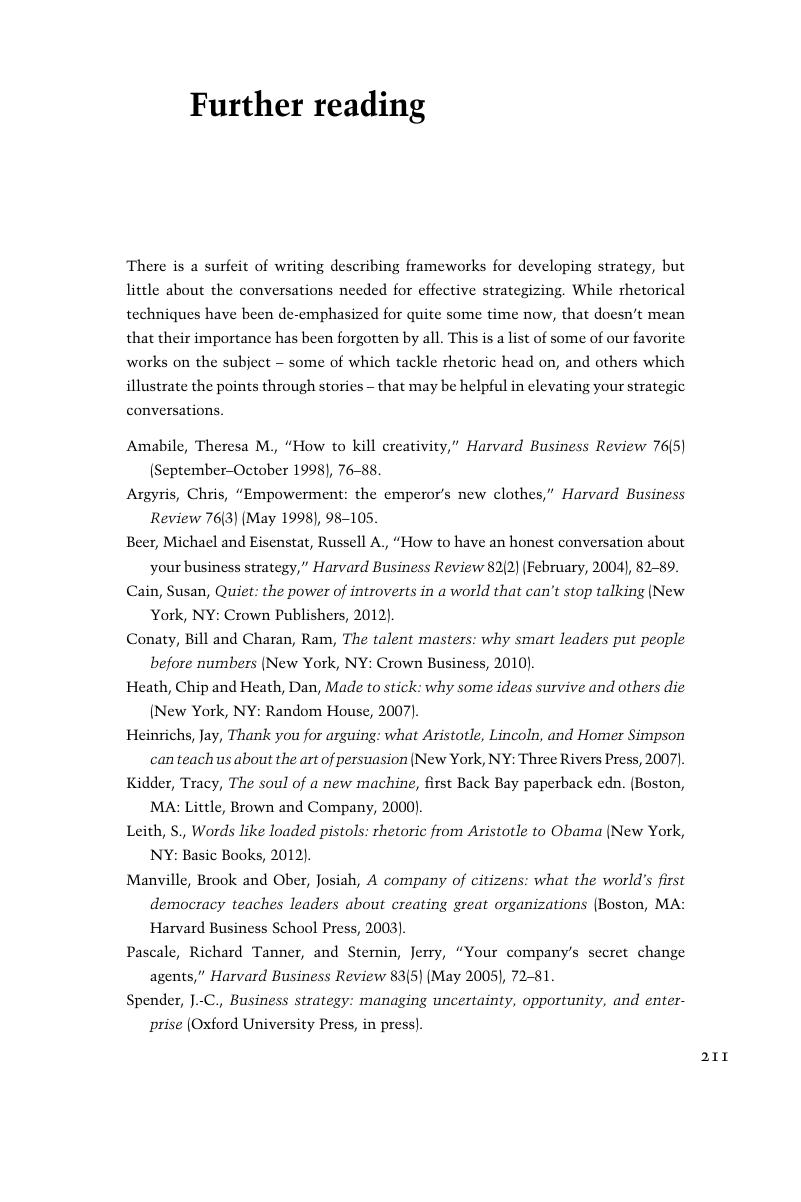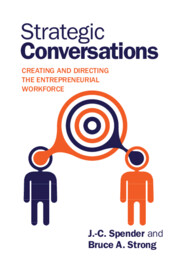Book contents
- Frontmatter
- Contents
- List of figures
- List of tables
- Acknowledgements
- Preface
- 1 Introduction – what are strategic conversations?
- 2 The strategic conversations imperative
- 3 Strategic conversations in the wild
- 4 Engaging employees in management’s agenda
- 5 Strategizing and the leaders’ role
- 6 Putting strategic conversations into practice – innovation communities
- 7 Conversation trumps structure – new norms for dialog
- 8 Strategic conversations across geographies, generations, and the multitude
- 9 Engaging the world outside in the conversation
- 10 Creating a self-reinforcing innovation platform – collateral benefits
- 11 Measuring the future
- 12 Epilogue – on managing
- Further reading
- Notes
- Index
- References
Further reading
Published online by Cambridge University Press: 05 June 2014
- Frontmatter
- Contents
- List of figures
- List of tables
- Acknowledgements
- Preface
- 1 Introduction – what are strategic conversations?
- 2 The strategic conversations imperative
- 3 Strategic conversations in the wild
- 4 Engaging employees in management’s agenda
- 5 Strategizing and the leaders’ role
- 6 Putting strategic conversations into practice – innovation communities
- 7 Conversation trumps structure – new norms for dialog
- 8 Strategic conversations across geographies, generations, and the multitude
- 9 Engaging the world outside in the conversation
- 10 Creating a self-reinforcing innovation platform – collateral benefits
- 11 Measuring the future
- 12 Epilogue – on managing
- Further reading
- Notes
- Index
- References
Summary

- Type
- Chapter
- Information
- Strategic ConversationsCreating and Directing the Entrepreneurial Workforce, pp. 211Publisher: Cambridge University PressPrint publication year: 2014



